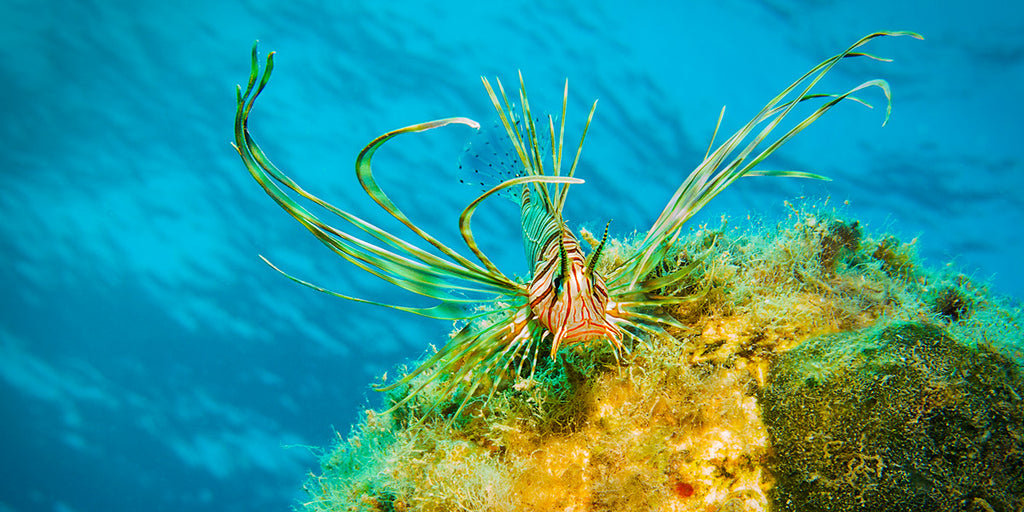Why You Should Hunt—and Eat!—Lionfish

Lionfish are beautiful, but along the US Atlantic seaboard, in the Caribbean, Gulf of Mexico and along the northern coastline of South America they’ve become a dangerously invasive species that’s decimating native reef fish populations. It’s become such a serious problem that an international coalition of government and educational agencies has launched a special program to encourage both the hunting and eating of invasive lionfish. In affected areas, lionfish hunting derbies (followed by epic fish frys!) are popular events.
But Aren’t They Poisonous?
This is a common misconception. Lionfish are venomous, not poisonous. The difference is that a venom must be injected to do harm, while a poison must be consumed. The venomous spines on a lionfish are in the fins, which means they’re easily removed during cleaning and are not part of the fish you would consume. Of course protective gloves should be worn while cleaning the fish, to prevent any accidental skin pricks.
A Delicious, and Eco-Conscious Menu Option
The flavor and texture of prepared lionfish is typically described as a flaky, buttery cross between lobster and shrimp. It can be prepared in the same variety of ways as any non-scaly fish, such as grilling, baking, stewing and frying. It also makes a tasty ceviche when paired with lime juice. There are numerous lionfish cookbooks available, as well as plenty of recipes to be found online.
Many people are concerned about sustainable eating practices nowadays, so it’s a relief to know this is one fish you can feel very good about adding to your diet. Every lionfish that ends up on a plate is one less lionfish chowing down on less plentiful reef fish.
How To Get Them
Because the lionfish is a slow moving, ambush predator, they’re pretty easily caught by hunters wielding sling spears or spearguns. You don’t need scuba gear either because lionfish make their homes in the shallows, where a snorkel and mask will do just fine.
Those on the hunt for lionfish will want to wear protective gloves and bring along a game trap specially made to house lionfish, like the Zookeeper, to shield themselves from the lionfish’s venomous spines.
If you’re not a spearfisher yourself and don’t know any, it’s a safe bet you can find lionfish for sale at fresh fish markets and seafood restaurants along the Atlantic coast, Gulf of Mexico and in the Carribean, where the fish are abundant and popular targets for local hunters.
A Note To Aquarists
Because of their elegant beauty and interesting behavior while stalking prey, Lionfish are very popular additions to saltwater aquariums. It’s fine to add one of these beauties to your tank, but it’s important to know that it will eat any other fish in the tank that can fit in its mouth. DNA analysis proves that the current crisis traces its roots back to about a dozen specimens that were most likely released into the wild by aquarists with buyer’s remorse.
If you should later change your mind about keeping a lionfish, you must not release it! Either find another aquarist or aquarium shop that can take it, or if it’s big enough, follow these directions to clean it and have it for dinner.
- Watersports Staff






Comments 0